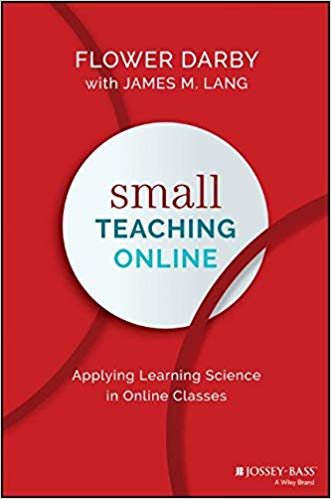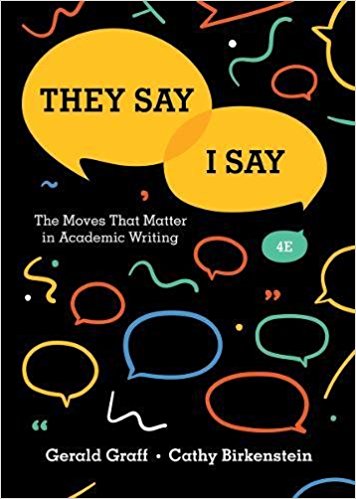
WALSH ONLINE COURSE SYLLABUS
COURSE: Teaching Online - Best Practices for Online EducationFALL 2019
 |
WALSH ONLINE COURSE SYLLABUSCOURSE: Teaching Online - Best Practices for Online EducationFALL 2019 |
OFFICE HOURS: Office hours are M-F 9 a.m. to 3 p.m. here on campus. Please email me to schedule an appointment outside of this time. |
PHONE (OFFICE): 248.823.1383 EMAIL ADDRESS: dsmith4@walshcollege.edu; mbravend@walshcollege.edu |
||
| General communication will happen via the Discussion Board and Announcements area. I will also be monitoring the "Q & A" discussion board and may be reached that way. For individual conversations, my preferred method for personal communication is Walsh email. Please allow 24 hours for me to respond to any email or phone call. | |||
In this course, you will explore several key issues that educators need to apply in teaching and learning in the digital age, including best practices and online pedagogies. You will look at how online learning is different from traditional methods of learning, examine how the digital practices of today's student are continually changing, and explore some key considerations that need to be addressed while designing and facilitating an engaging and student-centered learning environment.
 TEXTBOOK(S):
TEXTBOOK(S):
There are no required textbooks for this course; all required readings will be provided via the weekly modules in Moodle.
Suggested outside reading:
 |
Title: Small Teaching Online: Applying Learning Science in Online Classes Author: Flower Darby & James M. Lang Publisher: Jossey-Bass For Amazon purchasing information, click here |
 |
Title: They Say I Say: The Moves That Matter in Academic Writing Author: G. Graff & C. Birkenstein Publisher: W. W. Norton & Company, New York For Amazon purchasing information, click here |
An older edition has been made available online from drivelearning.org. Also useful, the They Say/I Say Template sheet developed by the CAC program at Monmouth College.
 TECHNICAL SUPPORT HELP:
TECHNICAL SUPPORT HELP:
For technical support and questions contact Online Learning at: onlinesupport@walshcollege.edu or 248-823-1680.
|
|
|
 GENERAL COURSE INFORMATION:
GENERAL COURSE INFORMATION:
The world of online learning is changing at a rapid pace, and we have the opportunity to reach students that would otherwise be inaccessible. To do this we need to have a shared understanding of what online learning actually is, how it's different from the traditional structure we grew up with, and how to best help students succeed. We can do this through diversifying content and assessments to suit all learners and providing course material in a way that utilizes technology to the learner's advantage.
This is a short course, 6 weeks of content, and will require you to spend some quality time processing the material and completing the assessments. This is a big time commitment for some of you, but please understand that by putting the time in now will allow you to reap huge rewards in the future. It is expected you will participate in this course as a fully engaged student (i.e. actively engaging with the course and your peers 3 or 4 days a week). This is the behavior we expect from our own students, so we should model it first.
We all bring our own experiences, histories, and expertise to this course, and can learn something from our colleagues. Also, each of us has room to improve and grow. No one has arrived yet, and there are always things to learn -- and that includes me! Please stay teachable throughout this course (as will I), and understand we are all working towards the same end goal of providing our students with the best experience possible. Walsh College already has a great reputation with their online courses - we will improve on that reputation by offering the best online instructors as well.
Thanks in advance for all your hard work - it will be worth it!
 STUDENT PROBLEM SCENARIOS:
STUDENT PROBLEM SCENARIOS:
Throughout the course you will be given several scenario-based problems that will hopefully mirror issues you are likely to encounter when teaching online. These are based on fictitious students whose history and background information will be provided. The goal is for you to analyze the situation from multiple perspectives, and determine the approach you would take in this situation. These scenarios are selected to encourage in-depth examination of current obstacles in online learning and are meant to foster a deeper understanding of how you, as the instructor, can turn problems into opportunities for learning and growth for your students.
These scenarios will tie in with the weekly module’s topic, and each scenario is graded. You must pass each one with an 80% or higher to "pass" the course. You will be allowed multiple attempts on many of them.
 DISCUSSIONS:
DISCUSSIONS:
This course is designed to facilitate peer-to-peer learning, so it is imperative you are active and engaged in each week's discussion. The purpose is to allow you to not only learn with but also from each other. These posts should be your own thoughts, insights, agreements/disagreements and ideas rather than what "others" say. I would encourage you to practice the "They say... I say" method as a way to incorporate the week's content (and any personal outside references you find relevant) and still argue your points. You may find it helpful to reference the template listed under Textbooks above.
There will be a discussion board each week. You are required to make one (1) original posting, and ask thought-provoking questions on at least two (2) other threads to help drive the discussion deeper. For your original posting, I encourage you to expand on what you've read in the materials, and how you might apply these new concepts in your own online courses. Make sure your responses are thoughtful (ask questions, provide feedback or opinions, suggest another viewpoint or example) and are original in nature. It is expected that you will access these discussion boards multiple times throughout the week, and engage in quality dialog with your peers. Please use this opportunity to share your own experiences and drive the discussion deeper. I would also encourage you speak into your peers by offering support and correction, or by asking for help or suggestions. Remember, we are all learning together!
I will be monitoring the discussion boards and posting when appropriate. I will make a point to comment on each original post, and to replies as necessary.
 PEER REVIEW - REVISED ASSESSMENT:
PEER REVIEW - REVISED ASSESSMENT:
You will have an opportunity for your peers to review one of your revised assessments created for online delivery. This is an existing assessment of your choosing, and should be something you traditionally do in class. The goal is to get creative and innovative with how you assess your students within the parameters of an online course.
 FINAL REFLECTION JOURNAL:
FINAL REFLECTION JOURNAL:
You will be asked to write a Reflection Journal (minimum of 2 double-spaced pages) at the end of this course describing how your perceptions of teaching online have or have not shifted through the course.The purpose here is to reflect upon your own development as an educator and write about your experience and/or insights. This is your chance to talk about yourself as an instructor and an adult learner, and the challenges you face teaching online in both roles. This is also a good opportunity to explore how this course may change the way you approach your own courses, and how your perceptions of online students may have shifted. Some starting questions will be given in the assignment.
|
Your performance in this course will be assessed as follows:
|
|
| WEEK BEGINS | ASSESSMENTS DUE | WEEKLY TOPICS | ASSIGNED |
| Course Opens |
|
||
| 1 |
|
|
|
| 2 |
|
|
|
| 3 |
|
|
|
| 4 |
|
|
|
| 5 |
|
|
|
| 6 |
|
|
|
| Wrap Up |
|
|
Note: The instructor reserves the right to modify syllabus information if necessary. Students will be notified of any changes to the syllabus.